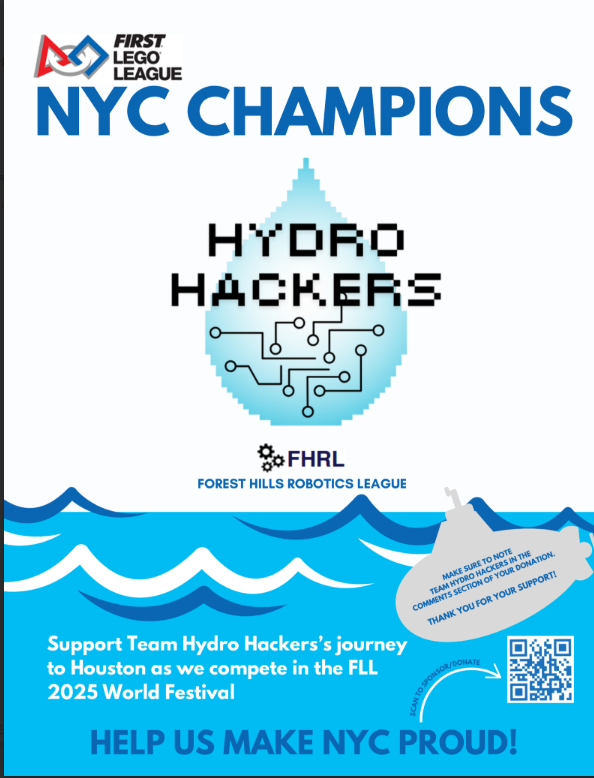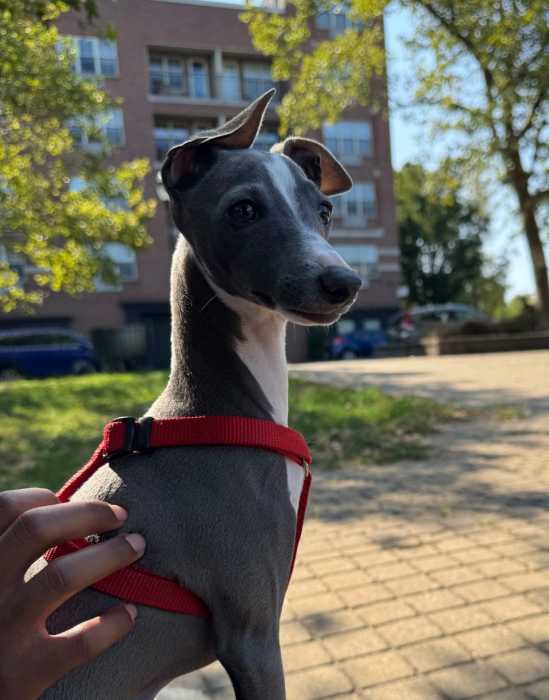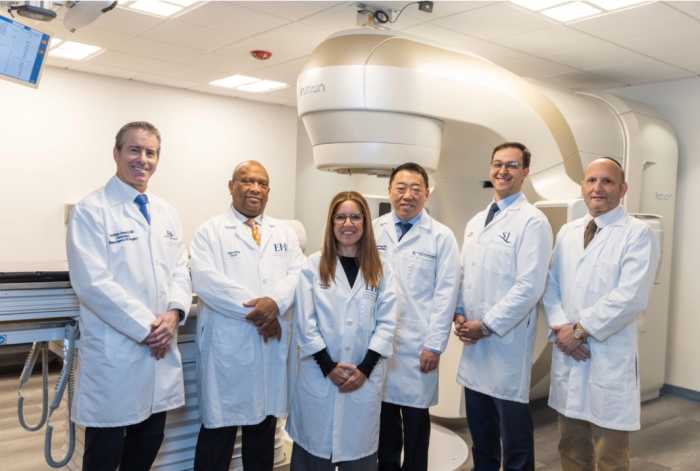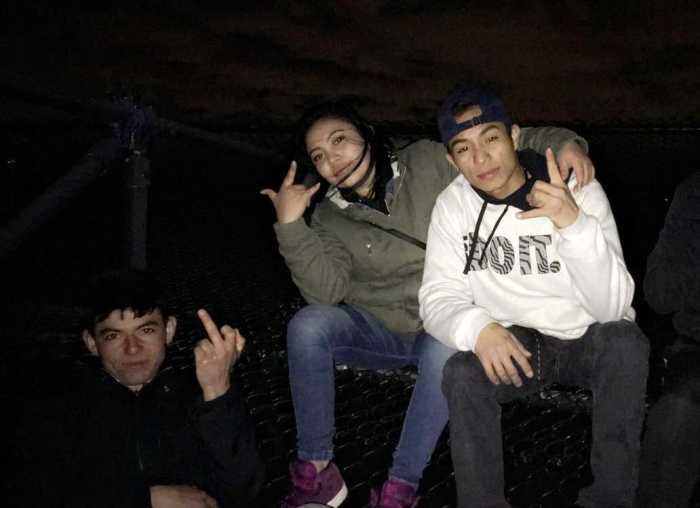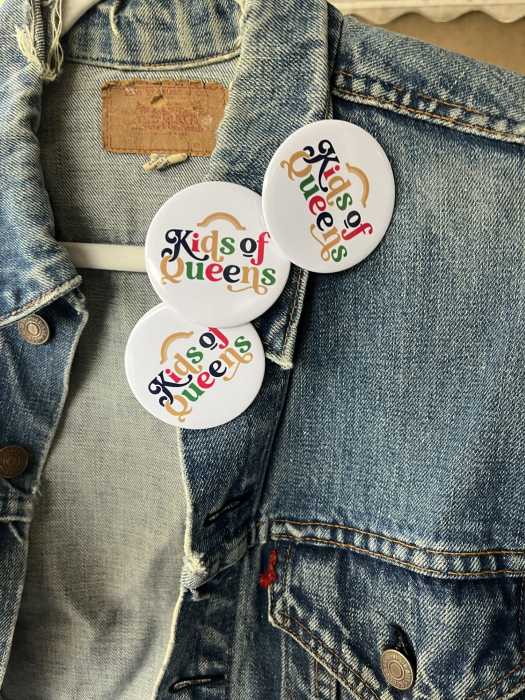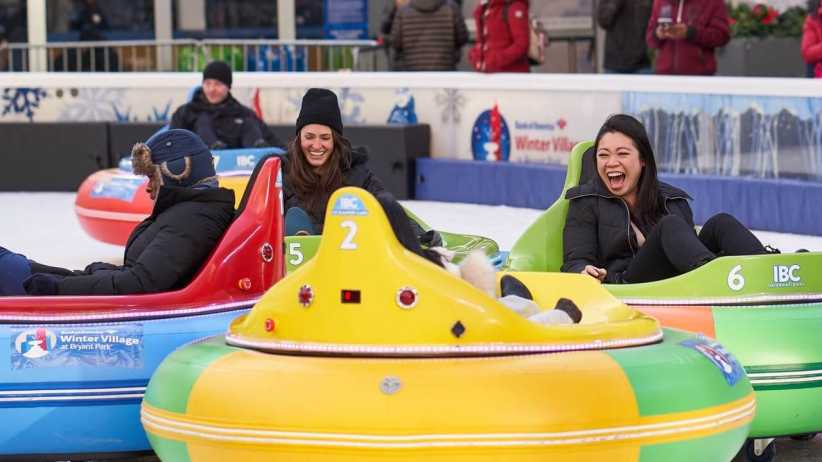A team of nine talented Queens youngsters is preparing to compete in one of the most prestigious robotics competitions in the world.
The Hydro Hackers, a FIRST LEGO League (FLL) team from the Forest Hills Robotics League (FHRL), took first place against 56 other teams at NYC’s FIRST LEGO Championships on March 16, held at John Dewey High School. The team, made up of students in grades 4 through 7, will now head to Houston to represent all of New York City at the five-day FIRST LEGO League World Festival.
To help fund their trip, the Hydro Hackers have launched a sponsorship campaign to rally support from local businesses and the community. Iffat Mai, founder of the Forest Hills Robotics League, and Helen Kartsonis, a coach for the Hydro Hackers, said they are proud of the team’s accomplishments and excited for them to showcase their skills on a global stage.
The Hydro Hackers have seen rapid success since their formation just last year. They earned a coveted “Golden Ticket” during their first-ever qualifier, which advanced them directly to the New York City Championships. This season, they took first place in their qualifier once again and went on to win the city title.
At the NYC Championships, the team impressed judges with their collaborative approach to tackling undersea challenges through robotics. Competing in both a robot game and an innovation challenge, the Hydro Hackers took top honors by combining strong teamwork, research, and problem-solving skills.
On April 16 to 19, in Houston, they will participate in the same categories—this time on a global scale—competing among more than 160 teams from around the world and in front of over 50,000 spectators. Since October, the team has been designing and coding robots capable of completing complex missions while also building a prototype for their innovation project.
For their innovation challenge, the students developed a LEGO robot prototype designed to explore underwater tectonic plates—aiming to detect early signs of tsunamis and weather events, locate potential medications, and identify new sources of energy. They will present their project in a five-minute pitch to a panel of judges, explaining their research process and design decisions. The team also created a second robot for the mission-completion aspect of the competition.
Kartsonis praised the students for their dedication and the long hours they’ve invested to reach this point.
“The meetings are always longer than the two hours that we’re supposed to take. They then meet virtually every Monday night to continue working on their projects, and they have been great learning from each other,” she said.
She also highlighted their teamwork and initiative beyond robotics.
“One of the examples I have is, you know, just even since winning the championship, the, the kids have created a website, hydrohackers.com, and they created it themselves,” she said. “Now everyone has contributed to it and made it really like a team website. I think that’s just an example of how they’ve worked the entire season, whether it’s on a robot game or on the innovation project.”
To help cover the $2,000 registration fee—along with booth materials, team t-shirts, visual aids, and travel costs—Mai and Kartsonis are actively seeking sponsorships.
“Whatever we can get, you know, can help send our team down there; that’ll be much, much appreciated,” Mai said.
Kartsonis added, “I think they are just so excited to bring everything that they’ve worked on all season to Houston and to be able to show what they’ve accomplished in such a short amount of time.”
Nearly 200 students participate in the Forest Hills Robotics League, a nonprofit organization that has offered hands-on STEM education to children ages 6 to 18 for the past 16 years. The group is currently based out of P.S. 144, where volunteer parents help teach everything from introductory LEGO icon coding to advanced programming for older students.
Mai founded the program when she was searching for a robotics league for her daughter.
“I started getting interested in it when my daughter was six years old. So I wanted her to be part of this program, and I went around, and I couldn’t find one,” Mai said.
She eventually formed a team in her basement, starting with her daughter and a few friends. As interest grew, the league expanded, forming age-specific teams and moving into a little league baseball field house before finally settling into their current space at P.S. 144.
“The whole thing is a nonprofit, and everything’s volunteer-based,” Mai explained. “Basically, they wanted the kids to do something meaningful, hands-on, and learn some science and technology, build some robots. We’ve been growing ever since, and we’re now based out of the P.S. 144 space, but it is open to everybody in the community,” she added.
Below is a flyer with a QR code providing more information on how to support the Hydro Hackers.
